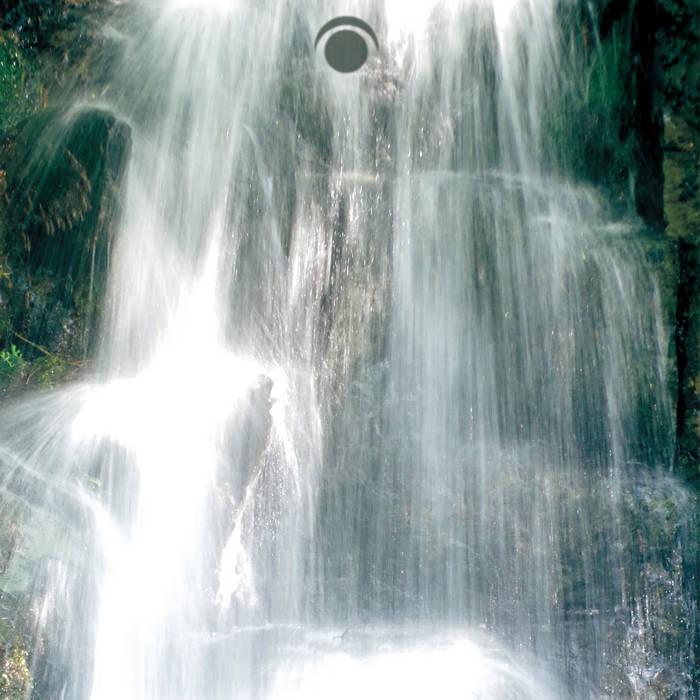 Martial artist, philosopher and actor Bruce Lee famously stated "Empty your mind, be formless. Shapeless, like water. If you put water into a cup, it becomes the cup. You put water into a bottle and it becomes the bottle. You put it in a teapot, it becomes the teapot. Now, water can flow or it can crash. Be water, my friend." Lee’s words were not merely pretty poetry, he lived them. Tengger are pan-Asian duo Itta and Marqido with their young son RAAI, and like Lee, Tengger craft their music in the same way they live their lives: with intention. They have built their principals—and fan following—after many years touring and living on the road, recording their music surrounded by unfamiliar cultures and environments. Self-described as EPT (Electronic Psychedelic Traveller) music, their name translates to "borderless sky beyond description" in Mongolian, and their music paints landscapes in the mind. Nomad is no exception to this rule, and their latest brings their philosophy, their music, and their moniker to a majestic head, offering an album of journey and movement that encourages flowing around the claustrophobia and confinement of 2020.
Martial artist, philosopher and actor Bruce Lee famously stated "Empty your mind, be formless. Shapeless, like water. If you put water into a cup, it becomes the cup. You put water into a bottle and it becomes the bottle. You put it in a teapot, it becomes the teapot. Now, water can flow or it can crash. Be water, my friend." Lee’s words were not merely pretty poetry, he lived them. Tengger are pan-Asian duo Itta and Marqido with their young son RAAI, and like Lee, Tengger craft their music in the same way they live their lives: with intention. They have built their principals—and fan following—after many years touring and living on the road, recording their music surrounded by unfamiliar cultures and environments. Self-described as EPT (Electronic Psychedelic Traveller) music, their name translates to "borderless sky beyond description" in Mongolian, and their music paints landscapes in the mind. Nomad is no exception to this rule, and their latest brings their philosophy, their music, and their moniker to a majestic head, offering an album of journey and movement that encourages flowing around the claustrophobia and confinement of 2020.
Tengger interweaves drone, ambient, psychedelia, the Krautrock influences of Kraftwerk, Cluster and Steve Reich, and new age music painted with environmental sounds. They craft their music with Itta’s harmonium, divine vocals, and toy instruments, along with analog synthesizer from Marqido. Based on this description, it is easy to confine them to Tangerine Dream ambient meanderings, but Tengger reject this notion, explaining their music as "landscape poetry". Known as Shansui in Japanese, this concept is worth exploring for this album.
Shanshui poetry refers to the movement in poetry influenced by the ancient Chinese "shan shui" (landscape) painting style of repeating mountains and water images. The art’s purpose serves not to create perfect replications as seen by the eye, but for opening windows to the viewer’s mind, breaking artistic conventions of "proper" color, light, shadow and brush strokes. Three basic components are in Shan shui paintings: Paths, the Threshold, and the Heart. Paths are never straight and always meander to help deeper the landscape through which it travels, mimicking the patterns created by nature. This path leads to a Threshold, a place that provides welcome, whether it is the mountain itself or the shadow cast by it. All natural lines should flow inward to the heart, serving as the focal point.
The gorgeous waterfall seen on the album cover is the first hint at this philosophy. Opener "Achime" (translating to "morning" in Korean) uses bird songs and other field sounds, with lyrics that translate to "the heart to greet this morning that will never be again." Tengger has explained the song is about travel: both the water’s travel, and our own inner travel, our nomadic wanderings in a search for life’s meaning. Song titles "Bliss," "Water," and "Flow" add further brushstrokes to the sound landscape. The individual sounds by themselves lend atmosphere, but when brought into relationship with each other, the songs offer rustic terra firma.
Bliss is all over this album, with a calm and compassionate vibe through the six songs that feels like a warm embrace. I have only one complaint; with the entire EP clocking in at just over half an hour, the time constraints don’t offer the songs room to expand, and sometimes seem like excerpts of broader experiments that, in other contexts, could work their magic over hours instead of minutes. The ten-minute closing track "Flow" showcases this: angelic vocals make their entry and move in and out, floating over an underlying layer of synths. Layers of sound build in waves, while the sound of flowing water appears, fades and reappears as the focal point with natural movement through the music.
This is music that offers exploration of sound, environment, and self. Lee also said "Life is an ever-flowing process and somewhere on the path some unpleasant things will pop up: it might leave a scar, but then life is flowing, and like running water, when it stops it grows stale. Go bravely on, my friend, because each experience teaches us a lesson." Just as Lee’s words serve as a hopeful reminder today, Nomad thankfully exists in the brutality of 2020, an oasis of calm in the storms.
Read More

